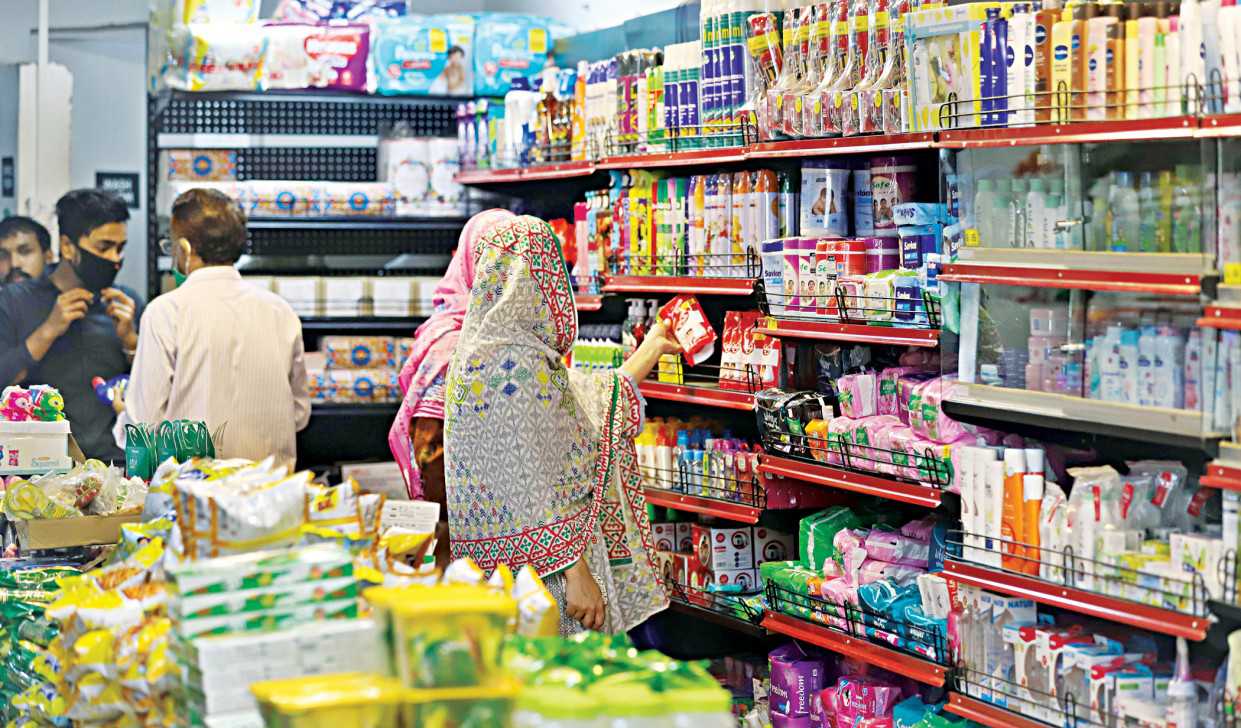FMCG companies tuning products to cash-strapped consumers’ means

Image collected
The makers of cereal, toiletries and other supermarket staples in Bangladesh are increasingly attempting to reshape their products to keep cash-strapped consumers from trading down as the coronavirus pandemic continues to limit monetary activities and cut incomes of thousands of people.
Some fast-moving consumer goods companies are rolling out new brands at less cost range and initiating price cuts while some are offering less expensive pack sizes and bundle packs and free deliveries.
"We have already offered economy bundles for some products where prices will be comparatively lower," said Jesmin Zaman, head of marketing of Square Toiletries.
One instance is its offer of baby powder with a pack of diapers.
Square Toiletries sells products under brands such as Senora, Jui, Meril, Revive, Kool, Zerocal, Sepnil, Magic and White Plus.
The company is focusing on offering a cheaper version of its already low-cost sanitary napkin brand Femina.
"We are doing this in order that people stick with us even after their reduced purchasing capacity," Zaman said.
Another such initiative to hook customers is Marico Bangladesh's rollout of hand wash and hand sanitiser through the Mediker SafeLife range under a "no profit" commitment for the first six months.
"We've launched it as a committed action to your consumers and society during this time period of crisis," said Christabel Randolph, director for legal and corporate affairs of the Bangladesh subsidiary of the Mumbai-based company.
This new range will give some relief to consumers in the situation, she said.
Marico's brands include Parachute Coconut Oil, Parachute Advansed, Hair Code, Saffola Active, Set Wet and Parachute Advansed Body lotion.
Regardless of the rising prices of recycleables and transportation cost, ACI Consumer Brands says it has refrained from hiking the prices of its products.
"Our consumer products have a thin profit percentage, so we've little scope to cut prices," said Syed Alamgir, managing director of ACI Consumer Brands, adding that now these were concentrating on service, not profits.
ACI can pride itself for owning several brands which have gone on to become a household name in Bangladesh such as for example ACI Aerosol, Savlon, ACI Mosquito Coil, ACI Pure Spices and Flour.
The move from the FMCG companies comes as the pandemic continues to shrink consumers' pockets.
A substantial number of Bangladeshi households are not working and experiencing meaningful financial pressures.
About 74 % of the families have seen a decrease in income due to the coronavirus pandemic, according to a fresh study of Brac, Data Sense and Unnayan Shamannay.
In the first week of the month, the Asian Development Bank said the coronavirus pandemic would cut 37 lakh jobs in Bangladesh.
One in five among the members of the labour force in Bangladesh were without jobs in April, said Rizwanul Islam, a former special adviser for the employment sector at the International Labour Office in Geneva.
And the near future looks equally bleak.
The World Bank has forecast the Bangladesh economy would grow by 2 per cent to 3 % this fiscal year and 1.2 per cent to 2.9 % within the next fiscal year.
Golden Harvest has introduced new vegetables and packaging in its selection of frozen foods to reduce the labour required at home seeing that many might no longer be able to afford domestic house help.
"We have plans to provide our products in bulk quantity to ensure that the price becomes lower," said Rajeeb Samdani, chairman Golden Harvest, whose portfolio ranges from dairy products to frozen foods.
The company is focusing on a low-profit margin to help make the products affordable and bring convenience to people's lives, he said.
"To facilitate consumers through the COVID-19 period, we have introduced free home delivery service by which, for the time being, consumers can purchase products at a cost lower than the utmost retail price," said Naquib Khan, corporate affairs director of Nestlé Bangladesh, the neighborhood businesses of the world's biggest packaged foods maker.
This is to greatly help consumers save while continuing to enjoy tasty and nutritious Nestlé products, Khan added.
Nestlé sells products under its world-famous brands such as for example Nescafe, Maggi and Nido.
Source: https://www.thedailystar.net
Tags :
Previous Story
- What will happen when overseas employment and remittance...
- Is Southeast Asia's drug trade too large to...
- Rescue package needed to salvage aviation industry
- COVID-19: Tripura resumes border trade with Bangladesh amid...
- Bangladesh garment factories reopen despite coronavirus threat to...
- Robots on hand to greet coronavirus patients in...
- Int'l brands' business practice questioned; staff interest ignored
- Bangladesh economy awaits a bigger blow: Economists